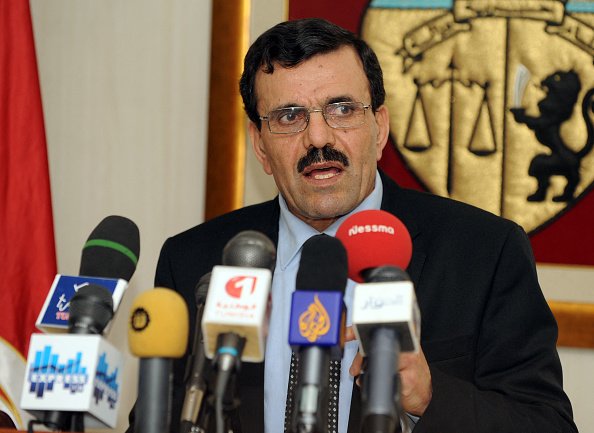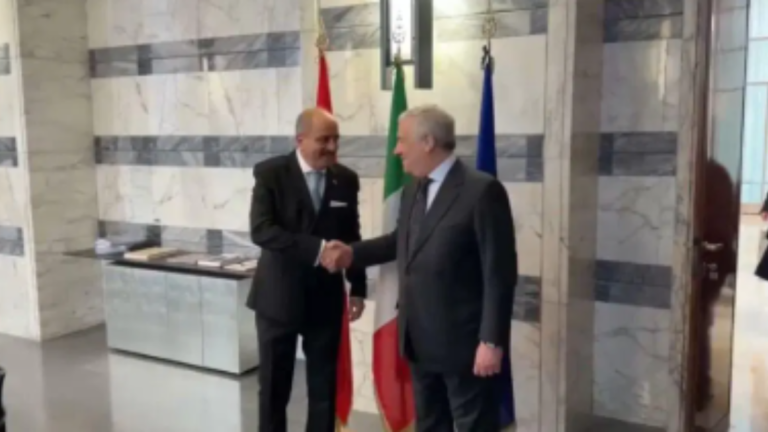
Tunisian Interior Minister Ali Larayedh speaks with journalists during a press conference on February 13, 2012 in Tunis. Twelve Tunisians were arrested after deadly clashes occurred in the southeast region of Sfax on February 1 and 2, following an investigation which showed that they were linked with "groups close to al-Qaeda" in Libya the Minister of the Interior said today. AFP PHOTO / FETHI BELAID (Photo by FETHI BELAID / AFP) (Photo by FETHI BELAID/AFP via Getty Images)
5 May Tunisia: Tunisia’s current political crisis, ousted Prime Minister Ali Larayedh, has been handed down a 34-year prison sentence by a Tunisian court on accusations of organizing the travel of combatants to Syria. The deposed leader and powerful opposition leader vehemently denied the charges in court, describing the case as politically motivated and part of a wider campaign against the opposition.
“I was not sympathetic, complicit, neutral, lenient with regard to violence, terrorism,” Larayedh answered the judge on Friday, denying the charges firmly. A top official in the Ennahdha party, Larayedh was prime minister from 2013-2014 and has been detained under pre-trial charges since 2022. His party has denounced the case as a political effort to quell opposition to President Kais Saied.
The court decision did not end at Larayedh. According to Tunisia’s official state news agency TAP, eight people received sentences ranging from 18 to 36 years in prison. The names of the convicted persons, however, have not been released.
This latest sentencing comes after the recent arrest of Ahmed Souab, a vocal critic of President Saied, and coincides with fresh prison sentences issued to political opponents, journalists, and business leaders. The crackdown has prompted criticism from human rights groups, who say Tunisia is experiencing a perilous undermining of the democratic freedoms achieved in the 2011 Arab Spring.
Since Saied shut down the parliament and took wide-ranging powers in 2021, critics aver that Tunisia has taken a stark turn towards authoritarianism. While the government assures that the judiciary is still independent, opposition figures and civil society actors claim the legal system is being used to repress dissent.
Tensions boiled over on Thursday as demonstrators flooded Habib Bourguiba Avenue in Tunis—the symbolic center of the Arab Spring uprising—shouting, “Saied go away, you are a dictator” and “The people want the fall of the regime.” It was the second large anti-Saied protest in a week.
Meanwhile, Saied supporters held a counter-rally, rallying to the defense of the president with “No to foreign interference” and “The people want Saied again” chants, symbolizing Tunisia’s increasing political polarization.
Ennahdha continues to deny all allegations of terrorism, threatening that the ongoing wave of prosecutions constitutes an attack on Tunisia’s post-revolutionary democratic order. As international human rights monitors increasingly raise the alarm, the future of Tunisia’s precarious democracy hangs in the balance.
for more news visit questiqa.com


